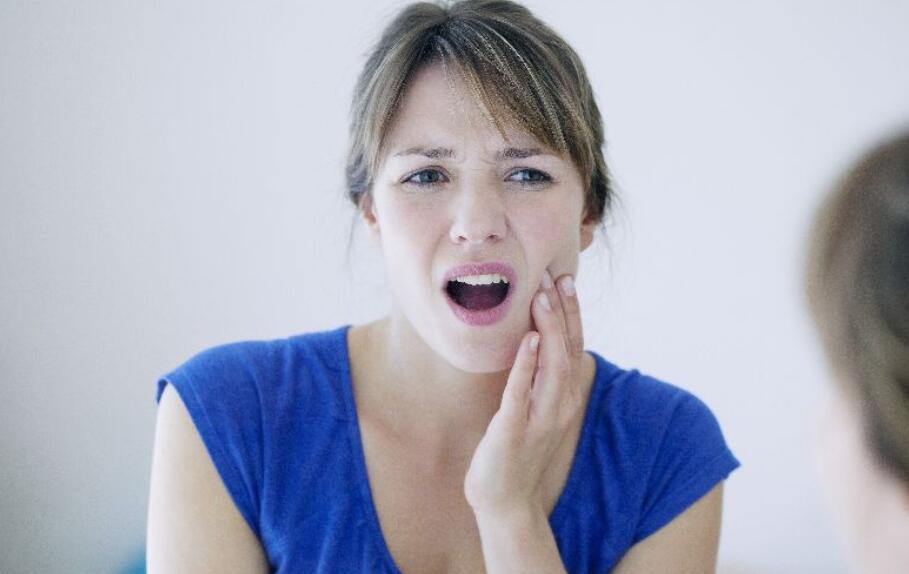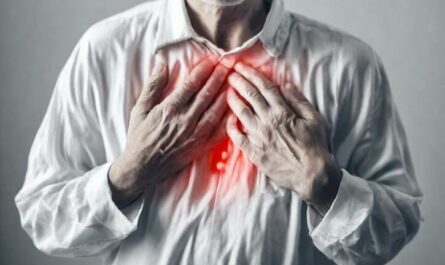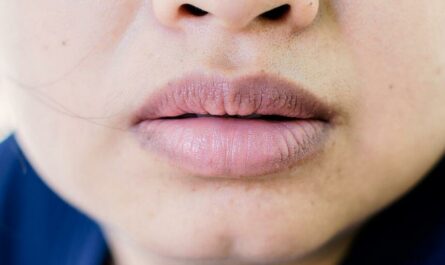Have you ever experienced a clicking or popping sensation in your jaw? You’re not alone. Many people encounter this common issue, which can range from a mild annoyance to a sign of a more serious underlying condition. In this comprehensive guide, we’ll explore 14 causes of jaw clicking and popping. This can help you understand the potential reasons behind your symptoms and when to seek medical attention.
Symptoms of Jaw Clicking and Popping
Here are some common symptoms associated with jaw clicking and popping:
1. Clicking or popping sound: One of the most noticeable symptoms is a clicking or popping sound that occurs when opening or closing the mouth. This sound is often audible to others and can be unsettling for the person experiencing it.
2. Jaw pain: Many individuals with jaw clicking and popping also experience pain or discomfort in the jaw area. This pain can range from mild to severe and may be intermittent or constant.
3. Difficulty or discomfort while chewing: Jaw clicking and popping can make it difficult or uncomfortable to chew food. This can lead to changes in eating habits or avoidance of certain foods altogether.
4. Locking of the jaw: In some cases, the jaw may lock or become temporarily stuck in an open or closed position. This can be painful and may require manual manipulation to unlock the jaw.
5. Headaches: Jaw clicking and popping can sometimes lead to headaches, particularly in the temples or behind the eyes. These headaches may be dull and constant or sharp and intermittent.
6. Ear pain or pressure: The temporomandibular joint (TMJ) is located near the ear, so problems with the jaw can cause ear pain or pressure. This can sometimes be mistaken for an ear infection or other ear-related issues.
7. Jaw stiffness or limited range of motion: Individuals with jaw clicking and popping may experience stiffness in the jaw joint or have difficulty fully opening or closing their mouth.
8. Facial swelling: In more severe cases, jaw clicking and popping can cause facial swelling. This symptom is less common but may occur due to inflammation or a more serious underlying condition.

14 Common Causes of Jaw Clicking and Popping
1. Temporomandibular Joint Disorder (TMD)
Temporomandibular joint disorder (TMD) is a broad term that encompasses a range of conditions affecting the TMJ and the muscles that control jaw movement. TMD is one of the most common causes of jaw clicking and popping. Other symptoms of TMD may include:
- Pain or tenderness in the jaw, face, neck, or shoulders
- Difficulty or discomfort while chewing
- Locking of the jaw joint, making it difficult to open or close the mouth
- A change in the way the upper and lower teeth fit together
TMD can be caused by various factors, such as teeth grinding (bruxism), jaw clenching, stress, arthritis, or jaw injury. Treatment for TMD may include jaw exercises, pain relief medications, muscle relaxants, or wearing a mouthguard.
2. Bruxism (Teeth Grinding)
Bruxism, or teeth grinding, is a common habit that can put excessive stress on the TMJ and cause jaw clicking and popping. Many people grind their teeth unconsciously during sleep, but some may also do it during the day when feeling stressed or anxious. Other symptoms of bruxism may include:
- Worn, chipped, or flattened teeth
- Increased tooth sensitivity
- Tight or fatigued jaw muscles
- Headaches, especially in the morning
Treatment for bruxism may involve wearing a custom-fitted mouthguard at night to protect the teeth and reduce stress on the TMJ. Stress management techniques, such as meditation or therapy, can also help reduce teeth grinding.
3. Malocclusion (Misaligned Bite)
Malocclusion, or a misaligned bite, occurs when the upper and lower teeth do not fit together properly. This can put uneven stress on the TMJ and cause jaw clicking and popping. Malocclusion can be caused by various factors, such as:
- Genetics
- Thumb sucking or pacifier use beyond age 3
- Prolonged bottle feeding
- Improperly fitted dental restorations
- Missing or extra teeth
Treatment for malocclusion may include orthodontic treatments like braces or clear aligners to gradually shift the teeth into proper alignment. In some cases, dental restorations or tooth extractions may be necessary to correct the bite.
4. Arthritis
Arthritis, particularly osteoarthritis and rheumatoid arthritis, can affect the TMJ and cause jaw clicking and popping. Osteoarthritis is a degenerative joint condition that occurs when the cartilage that cushions the joint breaks down over time.
Rheumatoid arthritis is an autoimmune disorder that causes inflammation in the joints, including the TMJ. Symptoms of arthritis in the TMJ may include:
- Pain or tenderness in the jaw
- Stiffness or difficulty moving the jaw
- Swelling in the face or around the jaw
- A grating sensation when moving the jaw
Treatment for arthritis in the TMJ may involve anti-inflammatory medications, pain relievers, and jaw exercises. In severe cases, surgery to repair or replace the damaged joint.
5. Trauma or Injury
Trauma or injury to the jaw, such as from a blow to the face or whiplash during a car accident, can cause jaw clicking and popping. The impact can damage the TMJ, displace the articular disc, or cause inflammation in the joint. Symptoms of a jaw injury may include:
- Pain or tenderness in the jaw
- Difficulty opening or closing the mouth
- Swelling or bruising in the face or jaw area
- A change in the way the teeth fit together
Treatment for a jaw injury may involve rest, ice or heat therapy, pain relief medications, and in some cases, surgery to repair the damaged joint.
6. Dislocation of the Articular Disc
The articular disc is a small, oval-shaped piece of cartilage that sits between the mandibular condyle and the joint socket, acting as a cushion and allowing smooth movement of the jaw.
If the articular disc becomes displaced or misaligned, it can cause jaw clicking and popping. This condition is known as a disc displacement disorder. Symptoms may include:
- A clicking or popping sound when opening or closing the mouth
- Difficulty or discomfort while chewing
- Locking of the jaw joint, making it difficult to open or close the mouth
- Pain or tenderness in the jaw
Treatment for a displaced articular disc may involve jaw exercises, pain relief medications, or wearing a splint or mouthguard to reposition the disc. In severe cases, surgery may be necessary to repair or reposition the disc.

7. Myofascial Pain Syndrome
Myofascial pain syndrome is a chronic pain disorder that affects the muscles and the connective tissue (fascia) that covers them. When myofascial pain syndrome involves the muscles that control jaw movement, it can cause jaw clicking and popping. Other symptoms may include:
- Pain or tenderness in the jaw, face, neck, or shoulders
- Trigger points (sensitive areas in the muscles that cause pain when pressed)
- Difficulty or discomfort while chewing
- Headaches
Treatment for myofascial pain syndrome may involve physical therapy, trigger point injections, pain relief medications, or stress management techniques.
8. Osteochondroma
Osteochondroma is a benign bone tumor that can develop in the TMJ, causing jaw clicking and popping. This condition is rare and typically occurs in younger individuals. Symptoms of an osteochondroma in the TMJ may include:
- A hard, painless lump near the TMJ
- Clicking or popping sounds when moving the jaw
- Difficulty or discomfort while chewing
- Asymmetry in the face or jaw
Treatment for an osteochondroma in the TMJ usually involves surgical removal of the tumor.
9. Synovial Chondromatosis
Synovial chondromatosis is a rare condition in which the synovial membrane that lines the TMJ produces excess cartilage, which can break off and form loose bodies within the joint. These loose bodies can cause jaw clicking and popping, as well as other symptoms such as:
- Pain or tenderness in the jaw
- Swelling in the face or around the jaw
- Difficulty or discomfort while chewing
- Locking of the jaw joint
Treatment for synovial chondromatosis typically involves surgical removal of the loose bodies and the affected synovial membrane.
10. Infection
In rare cases, an infection in the TMJ or the surrounding tissues can cause jaw clicking and popping. Infections can be caused by bacteria, viruses, or fungi and may result from dental procedures, ear infections, or other sources. Symptoms of a TMJ infection may include:
- Pain or tenderness in the jaw
- Swelling, redness, or warmth in the face or around the jaw
- Fever or chills
- Difficulty or discomfort while chewing
Treatment for a TMJ infection typically involves antibiotics to clear the infection and pain relief medications to manage discomfort. In severe cases, surgery may be necessary to drain the infected area.
11. Ehlers-Danlos Syndrome
Ehlers-Danlos syndrome (EDS) is a group of inherited disorders that affect the connective tissues in the body, including the skin, joints, and blood vessel walls.
Some types of EDS, particularly the hypermobile type, can cause jaw clicking and popping due to joint hypermobility. Other symptoms of EDS may include:
- Overly flexible joints
- Stretchy, fragile skin
- Easy bruising
- Chronic pain and fatigue
Treatment for EDS typically involves managing symptoms, such as using braces or splints to support hypermobile joints, physical therapy to strengthen muscles, and pain relief medications.
12. Osteomyelitis
Osteomyelitis is a rare but serious infection of the bone that can affect the TMJ and cause jaw clicking and popping. This condition can occur when bacteria from a dental infection, sinus infection, or bloodstream spread to the bone. Symptoms of osteomyelitis in the TMJ may include:
- Pain or tenderness in the jaw
- Swelling, redness, or warmth in the face or around the jaw
- Fever or chills
- Difficulty or discomfort while chewing
Treatment for osteomyelitis typically involves a course of intravenous antibiotics to clear the infection and, in some cases, surgery to remove the infected bone tissue.
13. Eagle Syndrome
Eagle syndrome is a rare condition caused by an elongated or misshapen styloid process, a small bony projection located on the temporal bone near the TMJ. An elongated styloid process can irritate or compress nearby nerves and tissues, causing jaw clicking and popping, as well as other symptoms such as:
- Pain in the face, neck, or throat
- Difficulty or discomfort while swallowing
- A foreign body sensation in the throat
- Ringing in the ears (tinnitus)
Treatment for Eagle syndrome may involve pain relief medications, steroid injections, or surgical removal of the elongated styloid process.
14. Fibromyalgia
Fibromyalgia is a chronic disorder characterized by widespread musculoskeletal pain, fatigue, and tenderness in specific points on the body. While fibromyalgia is not directly related to the TMJ, it can cause referred pain and contribute to jaw clicking and popping. Other symptoms of fibromyalgia may include:
- Chronic pain and stiffness in muscles and joints
- Fatigue and sleep disturbances
- Memory and concentration problems (“fibro fog”)
- Headaches
Treatment for fibromyalgia typically involves a combination of pain relief medications, exercise, stress management techniques, and therapy to help manage symptoms.
Home Remedies to Stop Jaw Clicking and Popping?
For many people, jaw clicking and popping can be managed with simple home remedies and lifestyle changes. Here are some tips to help alleviate your symptoms:
- Avoid hard or chewy foods: Stick to soft foods that don’t require excessive chewing, as this can put less strain on your jaw joints and muscles.
- Apply heat or cold: Placing a warm compress or ice pack on your jaw can help relieve pain and reduce inflammation. Alternate between heat and cold for the best results.
- Practice relaxation techniques: Stress and anxiety can cause you to clench your jaw or grind your teeth, exacerbating jaw clicking and popping. Try relaxation techniques like deep breathing, meditation, or gentle yoga to help reduce stress and tension in your jaw.
- Perform jaw exercises: Gentle jaw exercises can help stretch and strengthen the muscles around your jaw joints, improving flexibility and reducing clicking and popping. Your dentist or physical therapist can recommend specific exercises tailored to your needs.
- Avoid chewing gum: Chewing gum excessively can put extra strain on your jaw muscles and joints, leading to clicking and popping. Try to limit or avoid chewing gum altogether.
- Maintain good posture: Poor posture can contribute to jaw misalignment and TMJ issues. Make a conscious effort to sit and stand up straight, keeping your shoulders back and your head in a neutral position.
Professional Treatments for Jaw Clicking and Popping
If home remedies and lifestyle changes don’t provide sufficient relief, or if your jaw clicking and popping is accompanied by severe pain or other symptoms, it’s essential to seek professional help. Your dentist or doctor may recommend one or more of the following treatments:
- Mouthguards or splints: A custom-fitted mouthguard or splint can help prevent teeth grinding and clenching, reducing stress on your jaw joints and muscles. These devices are typically worn at night while you sleep.
- Medications: Over-the-counter pain relievers like ibuprofen or naproxen can help reduce inflammation and alleviate pain associated with jaw clicking and popping. In some cases, your doctor may prescribe stronger pain medications or muscle relaxants.
- Botox injections: In severe cases of TMJ, Botox injections into the jaw muscles can help relax them and reduce pain and clicking.
- Dental treatments: If your jaw clicking and popping is caused by a misaligned bite or other dental issues, your dentist may recommend orthodontic treatment.
- Surgery: In rare cases, surgery may be necessary to repair or replace damaged jaw joints. This is typically a last resort option, reserved for severe cases that don’t respond to other treatments.
When to Seek Medical Attention?
While jaw clicking and popping are often harmless and may resolve on their own, it’s essential to seek medical attention if you experience:
- Persistent or worsening pain in the jaw, face, neck, or shoulders
- Difficulty or discomfort while chewing or opening your mouth
- Locking of the jaw joint, making it difficult to open or close your mouth
- Swelling, redness, or warmth in the face or around the jaw
- Fever or chills
- A change in the way your teeth fit together
Your healthcare provider, dentist, or TMJ specialist can perform a thorough evaluation, including a physical exam and possibly imaging tests, to determine the underlying cause of your jaw clicking and popping and recommend an appropriate treatment plan.






